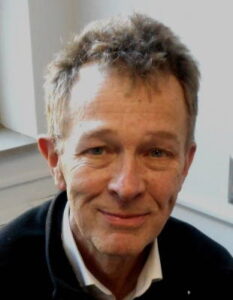Nelson affiliate faculty and co-director of the UniverCity Alliance Joel Rogers has been awarded one of just eleven WARF Named Professorships. This award honors faculty who have made major contributions to the advancement of knowledge, primarily through their research endeavors and is supported by the University of Wisconsin-Madison Office of the Vice Chancellor for Research and Graduate Education with funding from the Wisconsin Alumni Research Foundation.
The award includes $100,000 of flexible research funds that will be available from 2020 through 2025 and naming rights. Rogers decided to name his after Noam Chomsky, the famous linguist and social activist. So, beginning next academic year, his official title will be the Noam Chomsky Professor of Law, Political Science, Public Affairs, and Sociology.

Rogers has authored many books and hundreds of popular and scholarly publications on politics, comparative political economy, democratic theory, and urban governance. He plans to use the money from the WARF professorship to expand his work on “high-road” human development. This is a strategy for development, now widely influential among development professionals, government leaders, and social justice advocates, that Rogers first theorized and has for years applied, tested, and developed.
The high-road approach to development reconciles, under real-world competitive market conditions, what are often seen as irreconcilable interests in greater social and economic equity, environmental sustainability, democratic accountability and higher living standards. In broad terms, it does this by using improved democratic practice, in places, to increase those places’ multifactor productivity – repeatedly, and usually incrementally, reducing waste and adding value – and then capturing and sharing its benefits locally.
“The high-road approach respects people and the earth more, while growing social equity and wealth,” says Rogers. “That’s nice work if you can get it, and I believe any place can if it wants to.”
Along with his teaching and other research and writing, Rogers directs COWS, a UW-Madison center and national resource, research, and strategy center on building the high-road everywhere. COWS, through its subsidiary Mayors Innovation Project, State Smart Transportation Initiative, ProGov21, and other initiatives, has projects with state and local governments all over the country.
The UniverCity Alliance, which adopts this development approach, brings together representatives of many UW-Madison schools, departments, programs, and centers. Its purpose is to make urban teaching, research, and service a more central part of this University’s activity.
“We are now living in an urban world. How cities are governed will basically determine its fate,” said Rogers. “We think that UW-Madison, of the world’s greatest universities, can and should be part of making sure that’s a reasonably happy and fair and thriving one, not a horror.”
One part of UniverCity Alliance’s activity is UniverCity Year, a three-year partnership between UW-Madison and select Wisconsin communities. Launched in 2016 as a contemporary expression of the Wisconsin Idea, the program offers an opportunity for faculty, students, and community members to engage on a wide range of projects related to sustainability, economic development, arts and humanities, transportation, health, education and more. Through these projects, UniverCity Year aims to accelerate innovation and improve the lives of people in Wisconsin. To date, the program has worked with more than 1,000 students on more than 100 projects within the city of Monona, Dane County, Green County, and Pepin County.
Over the years, Rogers has also been awarded the MacArthur Foundation’s Fellows Program, but he was especially surprised and delighted by the WARF Named Professorship.
“I’m particularly grateful for this honor,” he says, “since it shows that UW-Madison’s research establishment also respects the work.”